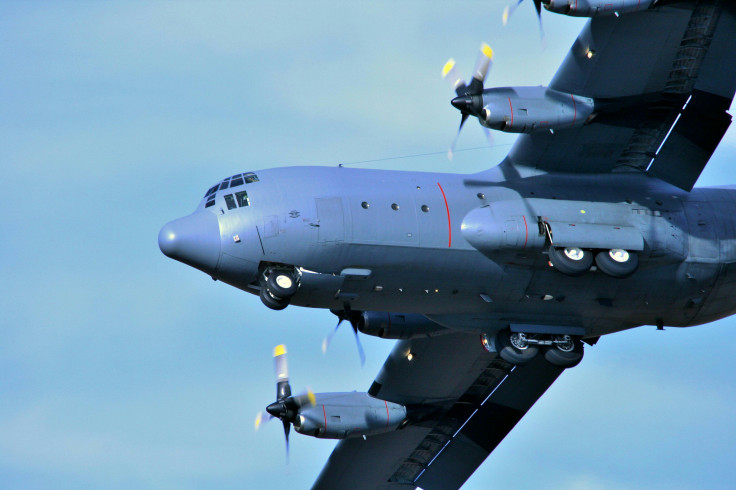Blacklisted Russian Cargo Plane Ignites US Fury After Secret Landing in Africa Amid Russia's Shadow Influence
The plane arrived heavily loaded and left South Africa empty, raising concerns

A Russian Ilyushin IL-76 cargo plane operated by Moscow-based Abakan Air, a company blacklisted by the US Treasury's Office of Foreign Assets Control (OFAC), made a mysterious stop in South Africa on Thursday.
The aircraft, which flew in from Iran after refuelling at Lanseria Airport near Johannesburg, landed heavily loaded in Upington, Northern Cape, before taking off hours later with an empty hold.
The brief visit has sparked alarm over possible sanctions-busting operations and underscored Moscow's growing footprint across Africa.
Background on Abakan Air and US Sanctions
Abakan Air was sanctioned by the US in June 2024 for transporting Russian military equipment and supporting Russia's defence industrial base during the war in Ukraine.
The sanctions prohibit US persons from engaging in transactions involving the airline and its aircraft, including the Ilyushin IL-76TD, which was added to the OFAC Specially Designated Nationals (SDN) list in October 2025.
The IL-76TD is a heavy-lift cargo aircraft capable of carrying up to 50 tonnes of cargo over medium distances, making it a critical tool for long-range logistics.
Details of the Landing in Upington
The Ilyushin IL-76 cargo aircraft, registered as RA-76474, landed in Upington with a full cargo load and departed later with an empty cargo hold. Flight tracking data shows that the aircraft had previously spent considerable time in Iran before arriving in South Africa.
Reports indicated that it arrived heavily loaded with armed weaponry and equipment but departed with an empty hold. According to Business Insider Africa, the aircraft's purpose was to transport general cargo, civilian helicopters, and acrobatic aeroplanes.
Aviation analysts and observers have highlighted the unusual flight path, extended layovers, and the timing of the landing, which together have raised questions about the precise nature of the cargo.
While South African authorities have stated that the aircraft was cleared to land under a standard foreign operator permit, experts note that the combination of a blacklisted operator and an irregular route could point to efforts to circumvent international sanctions.
The landing has therefore attracted considerable attention from global monitoring agencies and diplomatic circles, as the movement of blacklisted aircraft through third countries remains a sensitive issue in international aviation and sanctions enforcement.
South Africa's Response and Diplomatic Implications
The South African Department of Transport confirmed that the aircraft had permission to land in the country after Abakan Air applied for a foreign operator permit in September 2025.
However, the landing has prompted diplomatic concern, with analysts warning that it could strain relations between South Africa and the United States.
The incident illustrates the difficulties in enforcing international sanctions and monitoring aircraft movements across borders, particularly when involving sanctioned entities.
Russia's Expanding Influence in Africa
The landing of the blacklisted Russian cargo plane reflects a broader pattern of Russia's growing influence across the African continent. Moscow has increased its presence through military cooperation, economic partnerships, and logistical networks.
The use of sanctioned aircraft to transport cargo highlights concerns over the effectiveness of US sanctions and international oversight. Analysts note that such flights could be part of a strategy to maintain covert supply lines to allies or partner states.
International Aviation Experts Raise Concerns
Aviation experts have expressed concern over the landing, noting that blacklisted carriers operating in third countries present enforcement challenges.
Aircraft like the IL-76TD are capable of carrying sensitive or dual-use cargo, which can be difficult to track once cleared to operate under local permits. Such operations raise questions about the effectiveness of sanctions enforcement and the oversight of international aviation regulations.
Observers suggest that without stronger monitoring and coordination between governments, similar operations could continue, allowing sanctioned operators to circumvent restrictions while maintaining plausible deniability.
© Copyright IBTimes 2025. All rights reserved.





















